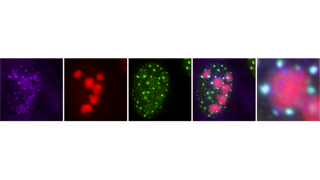Lower limb injuries impact the brain: enhanced brain activity and more conscious balance control

In his dissertation, Doctoral Researcher Toni Mujunen investigated how the brain responds to gentle movement stimulation for people with musculoskeletal injuries or peripheral nerve injuries associated with type 1 diabetes. Patients with musculoskeletal injuries were followed for 12 months to see whether recovery from these injuries affects the brain as well.
Based on the results, individuals with both musculoskeletal injuries and nerve impairments demonstrate greater brain activity than those without injuries. This means that their brains were allocating more resources to process movement-related signals.
“We often think of injuries as physical tissue damage, but the central nervous system also adapts to peripheral insults,” says Mujunen.
“The brain is not just a passive recipient of signals but works actively to compensate for the changes in the body”.
The results also highlighted an association between stronger brain activity and increased sway during balance tasks in patients but not in control participants. Injuries to the body may weaken or, in case of nerve damage, disrupt the pathways carrying movement signals to the brain. Thus, one explanation for the observed findings is that the brain increases its efforts to process movement information to improve movement control. Furthermore, both the stronger brain activity and the association to balance were present after 12 months of recovery in musculoskeletal injury patients.
“This was an interesting finding, as it suggests that the patients may have adopted movement control strategies that rely on more conscious control of balance, as opposed to subconscious control typically associated with balance performance,” Mujunen explains. “This could explain why some people continue to feel instability or altered movement long after their initial injury has healed.”
The findings from this dissertation highlight the adaptations of the central nervous system to peripheral injuries and suggest that they may be an important factor to consider in recovery and rehabilitation.
Toni Mujunen will defend his doctoral dissertation "Adaptation of cortical proprioceptive processing to peripheral lower limb injuries" on Friday, the 27th of June of 2025, at 12:00 noon, in Hall S212 (Seminarium Building) at the University of Jyväskylä. The opponent will be William Gaetz (Perelman School of Medicine, University of Pennsylvania, USA) and Custos will be Professor Harri Piitulainen (University of Jyväskylä).).
The defense will be streamed live at https://r.jyu.fi/dissertation-mujunen270625
The doctoral thesis is available in the JYX publication archive at https://jyx.jyu.fi/jyx/Record/jyx_123456789_103199?sid=169533235






